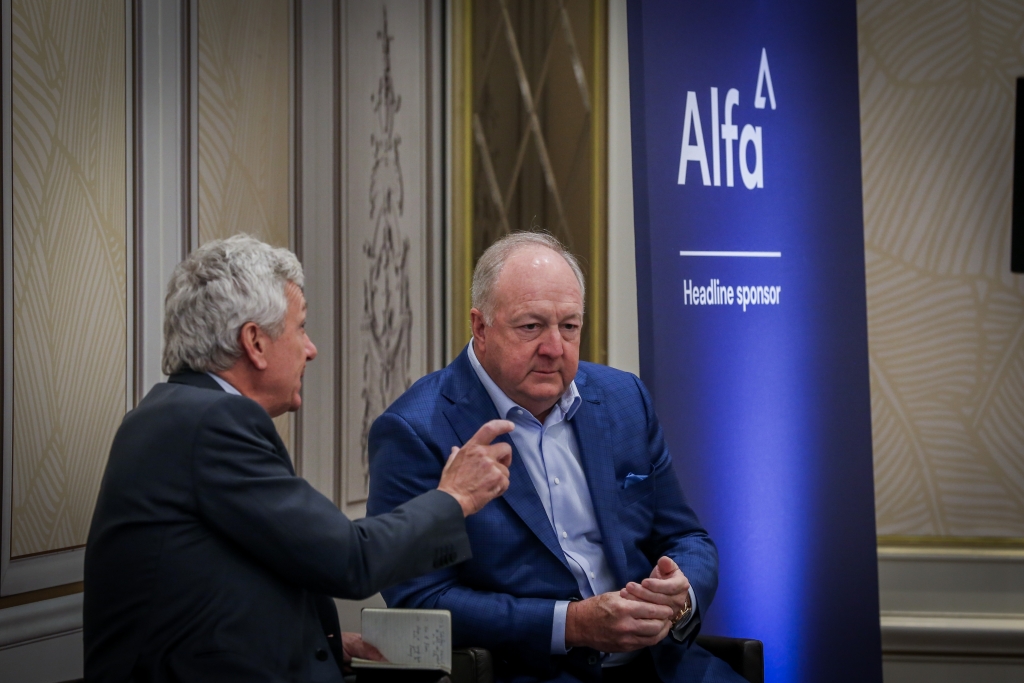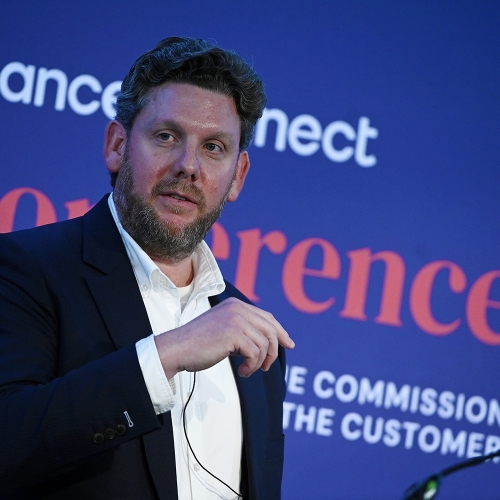Why banks are now reconsidering their investment in asset finance
Bill Stephenson, the Global CEO of PEAC Solutions, delivered the closing keynote at the Asset Finance Connect Leaders’ Summit Europe in Brussels earlier this year.
Stephenson, a veteran in the leasing industry, offered his candid views on the current challenges and opportunities in the asset finance sector, particularly for bank-owned divisions.

A storied career in leasing
Stephenson’s career spans several decades and diverse experiences, from founding Masterlease in the mid-1980s to his tenure at DLL and his current role at PEAC Solutions. Reflecting on his journey, he believes that all three types of financing organisations—banking groups, independently owned finance groups, and captives—are well-positioned if they prepare for the impending disruption. “The cancer that exists in our industry is complacency,” he states, criticising the lack of new disruptors over the past two decades.
Stephenson’s decision to leave DLL, the largest global independent leasing company at the time, was driven by his desire to be a disrupter rather than wait to be disrupted. Moving to PEAC Solutions, he focused on leveraging technology to create efficiency and innovation, starting with clean data and state-of-the-art systems.
The changing landscape of asset finance
Stephenson’s keynote highlighted the acute dependency of asset finance divisions on high capital availability and cheap funding, which has driven the growth of low-margin business. However, with interest rates normalising and defaults on the rise, these divisions are under renewed scrutiny from their parent banks. “The shift in market conditions will necessitate a recalibration of the risk-reward balance to deliver a reasonable return on equity and justify further investment,” says Stephenson.
Stephenson points out that asset finance businesses within banks often find themselves at the back of the queue when it comes to capital allocation, behind core banking operations and other strategic investments. “When capital becomes constrained and other priorities take hold, some banks may decide to exit the asset finance sector,” he predicts. “In the US, we are already seeing this change at some regional banks, and I think we are nearing a tipping point for European banks.”
Stephenson identifies several key challenges for the industry: rising IT operational expenses, increasing compliance and regulatory costs, and the upcoming Basel IV capital requirements. He argues that technology is crucial to managing these costs effectively.
Opportunities for independents
Having steered both bank-owned and independent finance companies, Stephenson sees significant opportunities for independent firms in the current market, especially given the strict Basel capital adequacy rules imposed on bank-held firms and the need to implement new IT system.
“These changes will create new business opportunities for independents, as they will thin the competitive landscape and narrow the gap between the cheap cost of capital offered by banks and the funding available through private equity,” he notes.
Embracing technology and clean data
At PEAC, Stephenson emphasizes the importance of clean data and modern technology. “Old legacy systems are the Achilles’ heel of the industry,” he remarks. “Every year, I saw the market trying to keep old systems running, which was too expensive and stifled innovation.”
PEAC’s strategy involves outsourcing mid-to-back office systems and using proprietary scorecards for quick decision-making. For example, they can process a €25,000 copier transaction in less than a minute, a task that previously took days. “That type of speed will disrupt the market,” Stephenson predicts.
“From an operational expense perspective, we’ll have unprecedented efficiency through our technology,” he asserts. PEAC plans to offer its systems as a Software-as-a-Service (SaaS) product to captives in Europe, promising significant cost savings.
Reinventing sales forces
Stephenson believes that asset finance sales forces need to evolve. “Salespeople must transition to a consultative selling approach, focusing on the value of the assets rather than just the financing,” he explains. He advocates for a performance-based compensation structure to drive motivation and results.
He also emphasizes the importance of hiring salespeople with expertise in the assets rather than just financial backgrounds. “We don’t need bankers; we need people who understand the industry we are working in, with experience in the vertical markets we serve,” he says.
He warns that asset finance sales teams, who have thrived in the past environment, must adapt to selling higher-margin business or face severe consequences. “If a business cannot successfully pivot and achieve higher margins, it will be reevaluated by its bank owners,” he asserts. “This process is already underway, and we could see strategic evaluations and retrenching actions on a scale not seen since 2009.”

Preparing for the future
Stephenson delivered a comprehensive analysis of the asset finance industry’s current state and future direction. His vision for leveraging technology, adapting sales strategies, and preparing for disruption will provide valuable guidance for industry leaders navigating these turbulent times.
“The market is normalizing, and with higher rates, we need salespeople to sell more value,” he advises. “Those prepared for the coming changes will thrive, while others may face serious consequences.”




